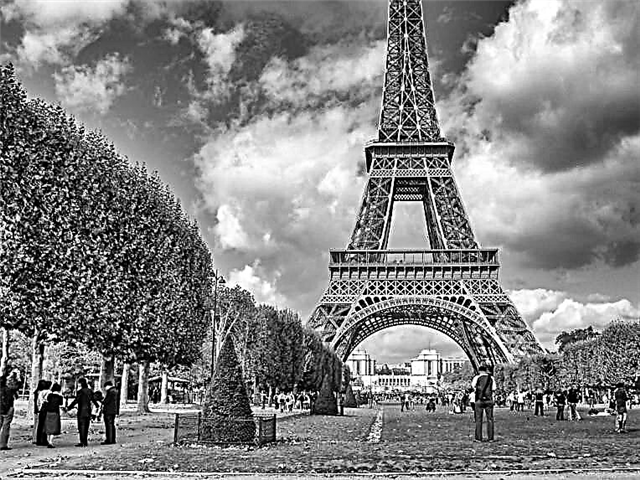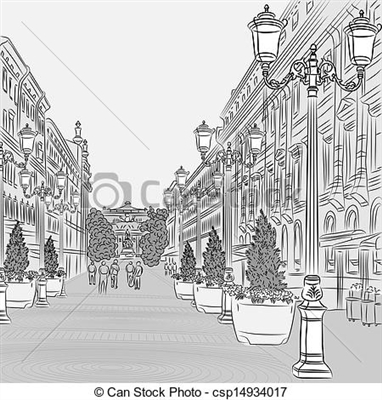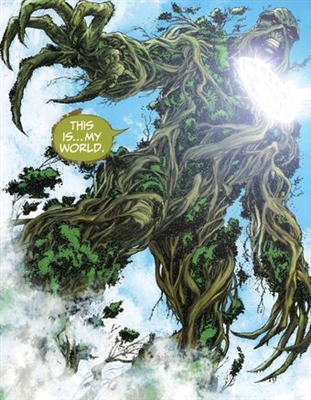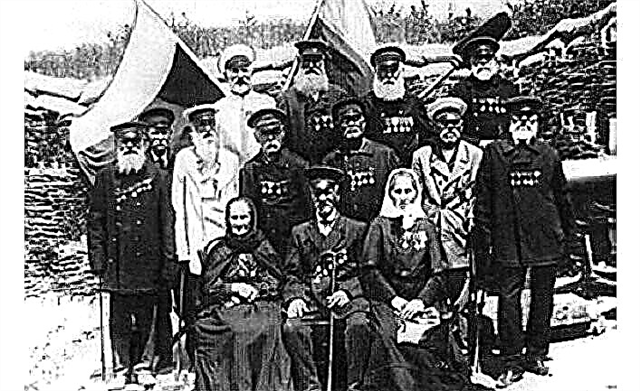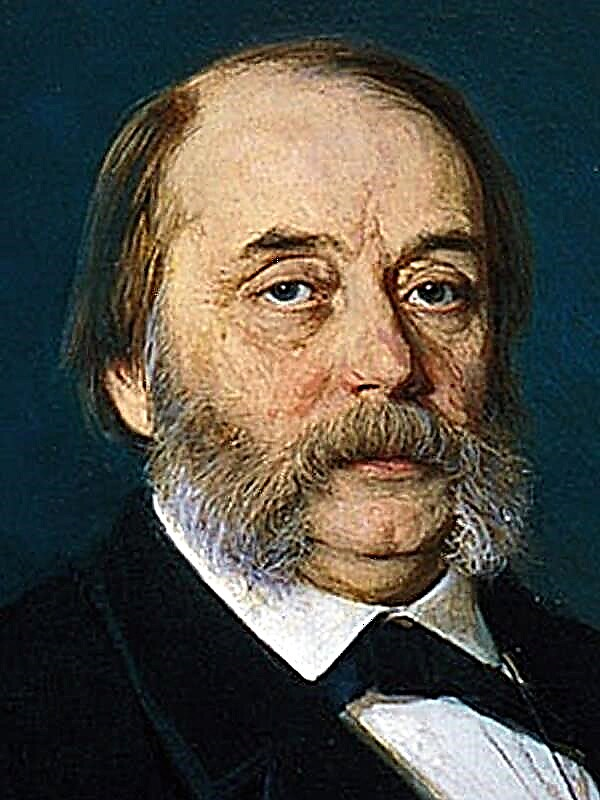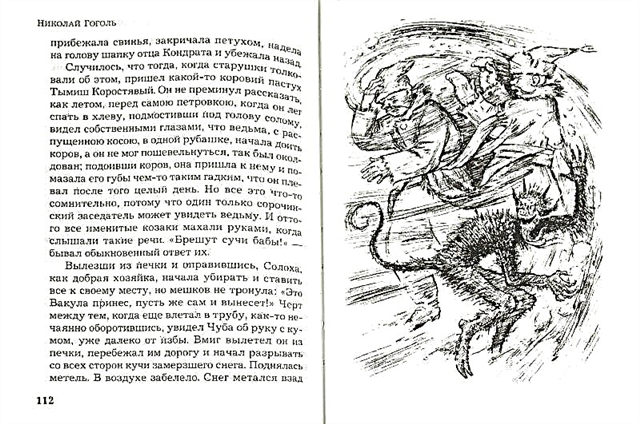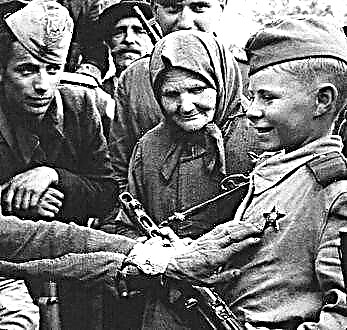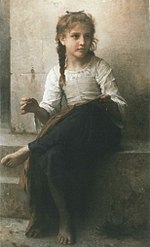Marianne, moving away from the light, on the advice of a friend takes up the pen. True, she is afraid that her mind is unsuitable for writing, and the syllable is not good enough, but believe me, she just flirts.
The tragic event that happened when Marianne was no more than two years old leaves an imprint on her whole life. Robbers attack the mail carriage and kill all its passengers, except for a small child, Marianne. Judging by the clothes, the girl is the daughter of a young noble couple, but no more accurate information can be found. Thus, the origin of Marianne becomes a mystery. The child is sent to the house of a rural priest, and his sister, a well-educated, sensible and truly virtuous woman, educates Marianne as her own daughter. Marianne wholeheartedly becomes attached to her patrons and considers the sister of the priest the best person in the world. The girl grows up with a graceful, sweet, obedient child and promises to become a beauty. When Marianne turns fifteen, circumstances force the priest's sister to go to Paris, and she takes the girl with her. But after a while they receive news of the priest's illness, and soon the one that replaced the poor girl’s mother dies. Her instructions for life will be preserved in the memory of Marianne, and although in the future she will often show imprudence, but her soul will forever remain filled with virtue and honesty.
So, a fifteen-year-old girl, very pretty, is left alone in Paris and all over the world, without a house and without money. In desperation, Marianne begs the monk who made acquaintance with the deceased to become her leader, and he decides to turn to a respectable person known for his piety and good deeds. Mr. Klimal, a well-preserved man of about fifty or sixty years old, very rich, having learned the story of Marianne, is ready to help: send the girl to school for seamstress and pay for maintenance. Marianne feels gratitude, but her heart breaks into pieces with shame, she feels unbearable humiliation, being the object of "mercy that does not observe mental delicacy." But, having parted with the monk, her benefactor becomes much more amiable, and, despite her inexperience, Marianne feels that there is something bad behind this courtesy. This is what happens. Very soon, she realizes that de Klimal is in love with her. Marianne considers it dishonorable to encourage his courtship, but accepts gifts, because in addition to virtue and decency, she is naturally endowed with coquetry and desire to like, so natural for a pretty woman. She had no choice but to pretend that she did not suspect the ardent feelings of an elderly admirer.
One day, returning from the church, Marianne turns up her leg and enters the house of a noble young man, the same one with whom they exchanged glances in the church, which speak so much to the heart. She cannot confess to Valville either in her miserable position, or in acquaintance with Herr de Klimal, who turns out to be Valval's uncle and pretends to be unfamiliar with Marianne, although when she sees her nephew at the feet of her ward, she is weary of jealousy. When Marianne returns home, de Klimal comes to her. He directly speaks of his love, warns Marianne against the fascination with “young heliports” and offers her “a small contract for five hundred livres of rent”. During this explanation, Valville suddenly appears in the room, and now his nephew sees an uncle kneeling in front of the same Marianne. What can he think of her? Only one. When the young man leaves, casting a contemptuous look at the innocent girl, she asks de Klimal to go with her to his nephew and explain everything to him, and he, casting off the mask of decency, reproaches her with ingratitude, says that from now on he stops giving , and disappears, fearing a scandal. But Marianne, who was offended by pride and love for Valville deprived of all prudence, thinks only about how to make Valville regret separation and repent of bad thoughts. Only in the morning she realizes the whole depth of her distress. She talks about all her sorrows to the abbess of the monastery, and during this conversation there is a lady who penetrates the girl with ardent sympathy. She offers the abbess to accept Marianne to the monastery boarding school and is going to pay for her maintenance. Marianne in an enthusiastic impulse irrigates the hand of the benefactress with "the most tender and sweet tears."
So Marianne finds a new patroness and finds a second mother in her. True kindness, naturalness, generosity, lack of vanity, clarity of thought - this is what constitutes the character of a fifty-year-old lady. She admires Marianne and treats her like her own daughter. But soon Marianne, adoring her benefactress, learns that she is none other than the mother of Valville, who learned of Marianne's innocence, inflamed with even more passionate love and already gave her a letter to the monastery, dressed as a footman. When Madame de Miran complains that her son began to neglect a rich and noble bride, carried away by some randomly met young girl, Marianne recognizes herself in the description of an adventurer and without hesitation confesses to all Madame de Miran, including his love for her son . Madame de Miran asks Marianne for help, she knows that Marianne is worthy of love like no other, that she has everything - “beauty, virtue, mind, and a beautiful heart,” but society will never forgive a young man of a noble family marrying a girl of unknown origin who has neither a title nor a fortune. Marianne, for the love of Madame de Miran, decides to abandon Valville's love and begs him to forget about her. But Madame de Miran (who hears this conversation), shocked by the nobility of her pupil, gives consent to the marriage of her son with Marianne. She is ready to courageously resist the attacks of relatives and protect the happiness of children from all over the world.
The brother of Madame de Miran, de Klimal, is dying. Before his death, he, full of remorse, confesses his guilt to Marianne in the presence of his sister and nephew and leaves her a small fortune. Marianne still lives in a monastery guesthouse, and Madame de Miran presents her as the daughter of one of her friends, but gradually the rumors about the upcoming wedding and the bride’s doubtful past spread wider and reach the ears of the numerous and swaggering relatives of Madame de Miran. Marianne is abducted and taken to another monastery. The abbess explains that this order is from above, and Marianne is given a choice: either get a haircut as a nun, or marry another person. That same evening, Marianne was put in a carriage and taken to a house where she meets a man whom she was married to. This is the minister’s wife’s milk brother, an unremarkable young man. Then, in the minister’s office, there is a real trial of a girl who has not done anything wrong. Her only crime is beauty and wonderful spiritual qualities that attracted the heart of a young man from a noble family. The minister announces to Marianne that she will not allow her marriage to Valville, and invites her to marry the “glorious little man” with whom she just talked in the garden. But Marianne with firmness of despair declares that her feelings are unchanged, and refuses to get married. At that moment, Madame de Miran and Valville appeared. Full of noble sacrifice, the speech of Marianne, her appearance, manners and devotion to the patroness, drag the scales to her side. All those present, even the relatives of Madame de Miran, admire Marianne, and the Minister announces that he is not going to intervene in this matter anymore, because no one can prevent “virtue from being kind to the human heart” and returning Marianne to her “mother” .
But the misfortunes of Marianne do not end there. A new boarder comes to the monastery, a girl of noble birth, half Englishwoman, Mademoiselle Warton. It happens that this sensitive girl faints in the presence of Valville, and this is enough for the windy young man to see in her a new ideal. He stops visiting the sick Marianne and secretly sees Mademoiselle Warton, who falls in love with him. Upon learning of her lover's betrayal, Marianne becomes desperate, and Madame de Miran hopes that her son’s blindness will someday pass. Marianna understands that her lover is not so guilty, he just belongs to the type of people for whom “obstacles have an irresistible attractive force”, and the mother’s consent to his marriage with Marianna spoiled everything, and “his love dozed off”. Marianne is already known in the world, many admire her, and almost simultaneously she receives two offers - from the fifty-year-old count, a man of outstanding virtues, and from the young marquis. The pride, which Marianne considers the main driver of human actions, makes her act with Valville as if she does not suffer at all, and she wins a brilliant victory: Valville is again at her feet. But Marianne decides not to meet him again, although she still loves him.
At this note, Marianne breaks off. From individual phrases, for example, when she mentions her secular successes or calls herself a countess, it can be understood that in her life there were still many adventures, which, alas, we are not destined to learn.


